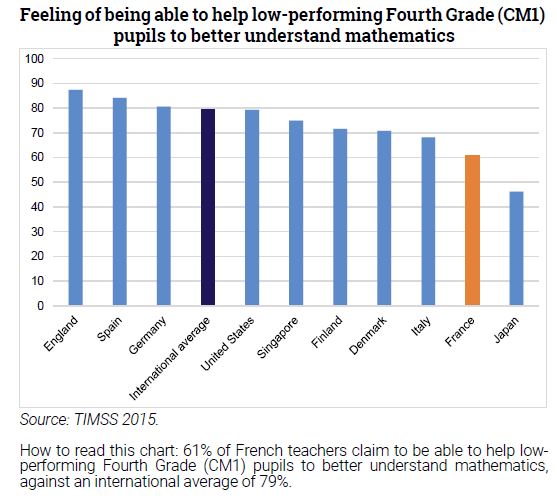Trésor-Economics No. 235 - How can government spending on education be made more efficient?
Investment in education provides substantial long-term gains for individuals, the economy and society as a whole. However, not all government intervention in this area is equally efficient in terms of meeting the goal of educating and training citizens who are able to make a living from their work.
Technical advances and globalisation are not only increasing demand for qualifications but also the uncertainty surrounding the abilities required in the future. Skills in science, technology, engineering and mathematics help people adjust to rapid changes but so do strong general and soft skills, such as perseverance, the ability to innovate and to cooperate.
Education spending in France, taken as a whole and on the basis of the PISA performance indicator, is close to the OECD average in terms of efficiency but significantly trails the most efficient countries, in particular Finland. Average expenditure approaches the OECD average but it has an atypical structure at the expense of primary education. Results have been declining since the turn of the century and it is in France that social background has the greatest impact on the PISA test results.
Empirical literature posits that teachers, and educational practices in particular, play a key role in students' academic results. By international standards, French teachers feel less well trained, especially in mathematics, and the appeal of the profession has fallen considerably.
Beyond the reduction in class size, already rolled out in priority education areas, efforts could be made to improve the standard of teaching with an eye to boosting the efficiency of government spending, in particular for primary schools. This could involve boosting the profession's appeal and enhancing training for teachers both in their subjects and in educational practices.
